Description
DIRECTIONS: For Adults, take two (2) quick release capsules dally, preferably with a meal.
Supplement Facts
Serving Size: 2 Capsules
Servings Per Container: 30
Amount Per Serving:
Maitake (Grifola frondosa) mycelium ………. 300mg
Reishi (Ganoderma lucidum s.l.) mycelium….100mg
Chaga (Inonotus obliquus) mycelium…………100mg
Cassia (Cinnamomum cassia) bark extract…..100mg
Barberry…………………………………………….100mg
Green Tea (Camellia Sihensisy)………………….50mg
Chromium…………………………………………….20mg
CBD……………………………………………………20mg (THC Content: <0.0001%)
Our blood sugar support formula is built around a synergistic blend of functional mushrooms, botanicals, nutrients, and cannabinoids, each selected for its evidence-based benefits in maintaining healthy glucose metabolism and metabolic function.
Maitake (Grifola frondosa) mycelium (300mg) is rich in β-glucans, which have demonstrated the ability to enhance insulin sensitivity and promote glucose uptake in peripheral tissues [1]. Studies have shown Maitake extracts can significantly lower blood glucose in both animal models and human trials [2].
Reishi (Ganoderma lucidum) mycelium (100mg) contributes additional metabolic support through its adaptogenic and anti-inflammatory effects. Research indicates Reishi can help reduce oxidative stress and modulate insulin signaling, which may be beneficial for glycemic control [3, 4]. Similarly,
Chaga (Inonotus obliquus) mycelium (100mg) is a potent antioxidant with demonstrated antidiabetic activity in preclinical models, potentially aiding β-cell protection and reducing insulin resistance [5].
Cassia cinnamon (Cinnamomum cassia) bark extract (100mg) is one of the most well-researched botanicals for blood sugar regulation. It contains bioactive compounds such as cinnamaldehyde and polyphenols, which can mimic insulin activity, lower fasting glucose, and improve HbA1c in people with type 2 diabetes [6, 7].
Barberry (Berberis vulgaris) (100mg) is included for its berberine content, a compound shown to activate AMP-activated protein kinase (AMPK), thereby improving insulin sensitivity and glucose uptake in a manner comparable to metformin in some trials [8, 9].
Green Tea (Camellia sinensis) (20mg) provides epigallocatechin gallate (EGCG), a catechin shown to support insulin sensitivity, reduce inflammation, and assist in lipid metabolism, further enhancing glycemic control [10, 11].
The inclusion of Chromium (20mcg) addresses the well-documented role of this trace mineral in potentiating insulin action and improving glucose tolerance, particularly in individuals with insulin resistance [12].
Finally, CBD (Cannabidiol) (20mg, THC <0.0001%) offers potential antidiabetic benefits by modulating inflammatory pathways, reducing oxidative stress, and interacting with the endocannabinoid system, which is increasingly recognized for its role in glucose homeostasis [13, 14]. While clinical research on CBD for blood sugar regulation is still emerging, early studies suggest it may improve insulin sensitivity and reduce neuropathic complications associated with diabetes.
References
-
Hossain, M. et al. (2012). Biological activities of Maitake mushroom. Journal of Nutrition & Metabolism.
-
Konno, S. (2001). Antidiabetic effects of a Maitake mushroom extract. Journal of Medicinal Food.
-
Wachtel-Galor, S. et al. (2004). Ganoderma lucidum effects on glucose and lipid metabolism. International Journal of Medicinal Mushrooms.
-
Zhao, L. et al. (2012). Anti-diabetic effects of Ganoderma lucidum polysaccharides. Phytomedicine.
-
Sim, Y. et al. (2016). Anti-diabetic potential of Inonotus obliquus. Journal of Ethnopharmacology.
-
Khan, A. et al. (2003). Cinnamon improves glucose and lipids of people with type 2 diabetes. Diabetes Care.
-
Allen, R. et al. (2013). Cinnamon for diabetes: systematic review. Annals of Family Medicine.
-
Yin, J. et al. (2008). Berberine improves glucose metabolism in diabetic rats. Metabolism.
-
Zhang, Y. et al. (2010). Berberine in the treatment of type 2 diabetes: meta-analysis. Evidence-Based Complementary and Alternative Medicine.
-
Thielecke, F., Boschmann, M. (2009). Green tea catechins and cardiovascular risk. American Journal of Clinical Nutrition.
-
Venables, M. et al. (2008). Green tea extract ingestion and fat oxidation. American Journal of Clinical Nutrition.
-
Anderson, R. et al. (1997). Chromium supplementation and insulin resistance. Journal of the American College of Nutrition.
-
Stanley, C. P. et al. (2013). Cannabidiol modulates inflammation in diabetic models. Diabetes Obesity and Metabolism.
-
Rajesh, M. et al. (2010). Cannabidiol attenuates cardiac dysfunction and oxidative stress in diabetic mice. Journal of the American College of Cardiology.
DISCLAIMER: This product may be a complementary medicine and/or not have been evaluated and verified by the South African Health Products Regulatory Authority for its quality, safety or intended use. Use of this product is therefore not intended to compensate for diagnosis, treatment, cure, or mitigation of medical conditions and must not substitute the obtaining of medical advice from a registered health professional for any health or health-related conditions.
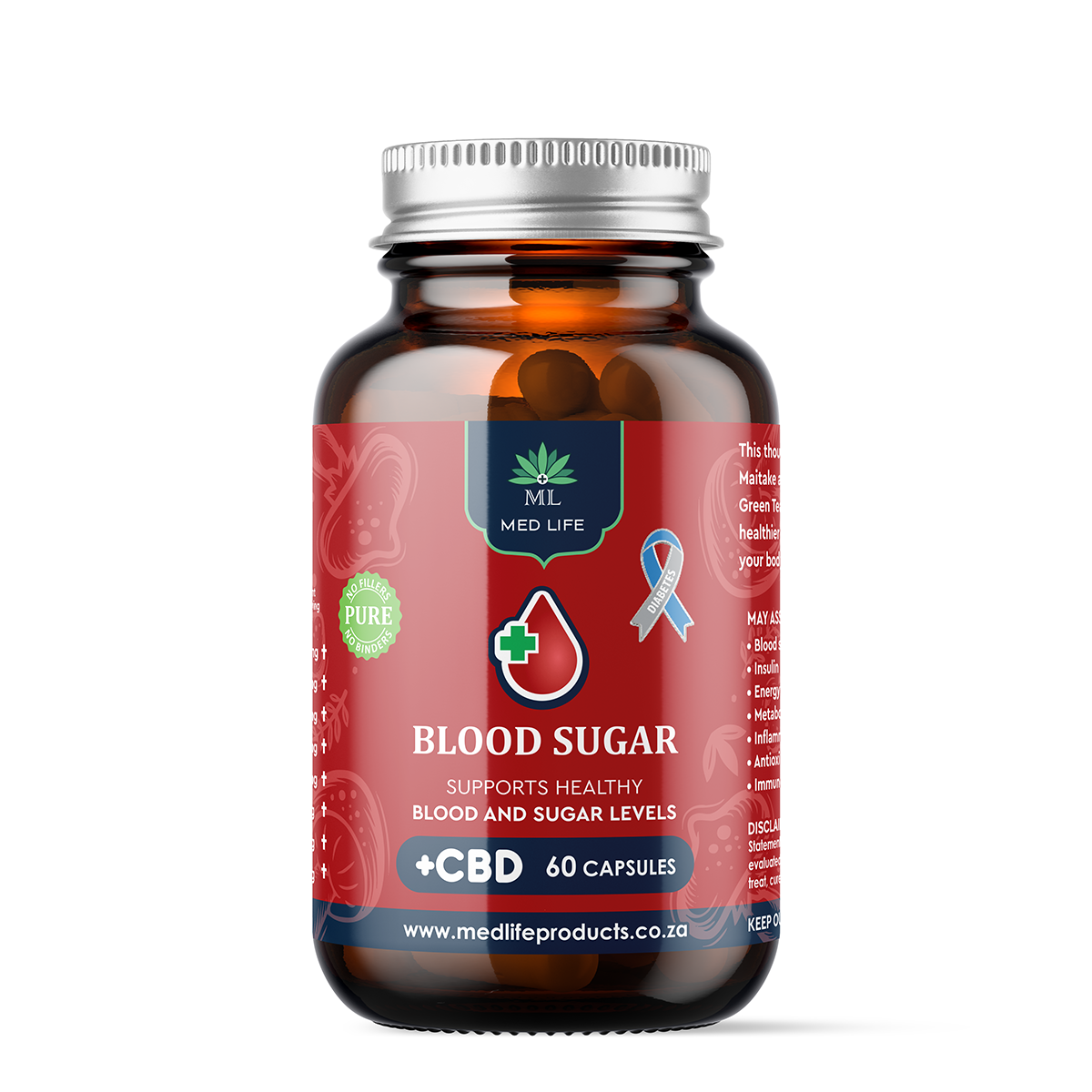
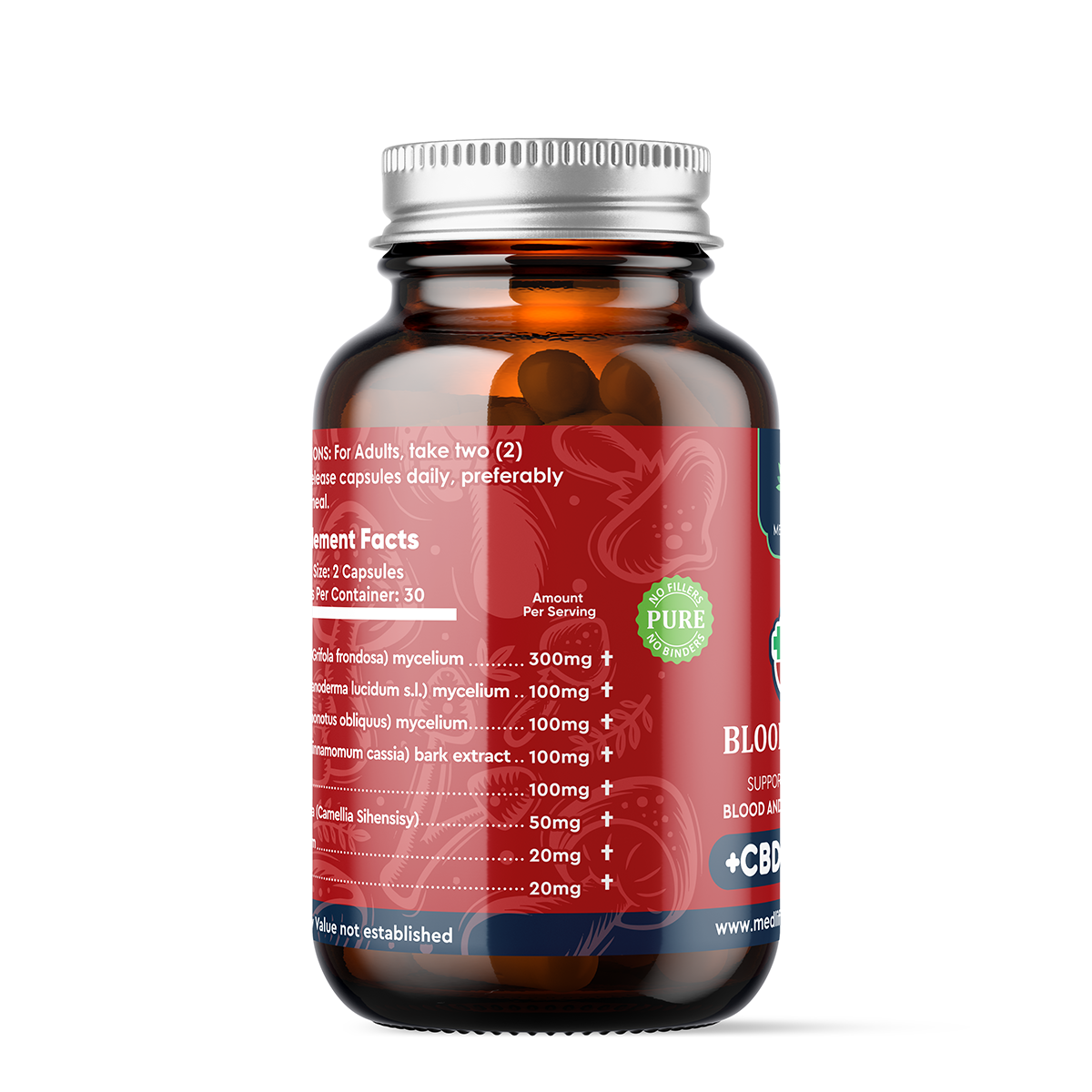
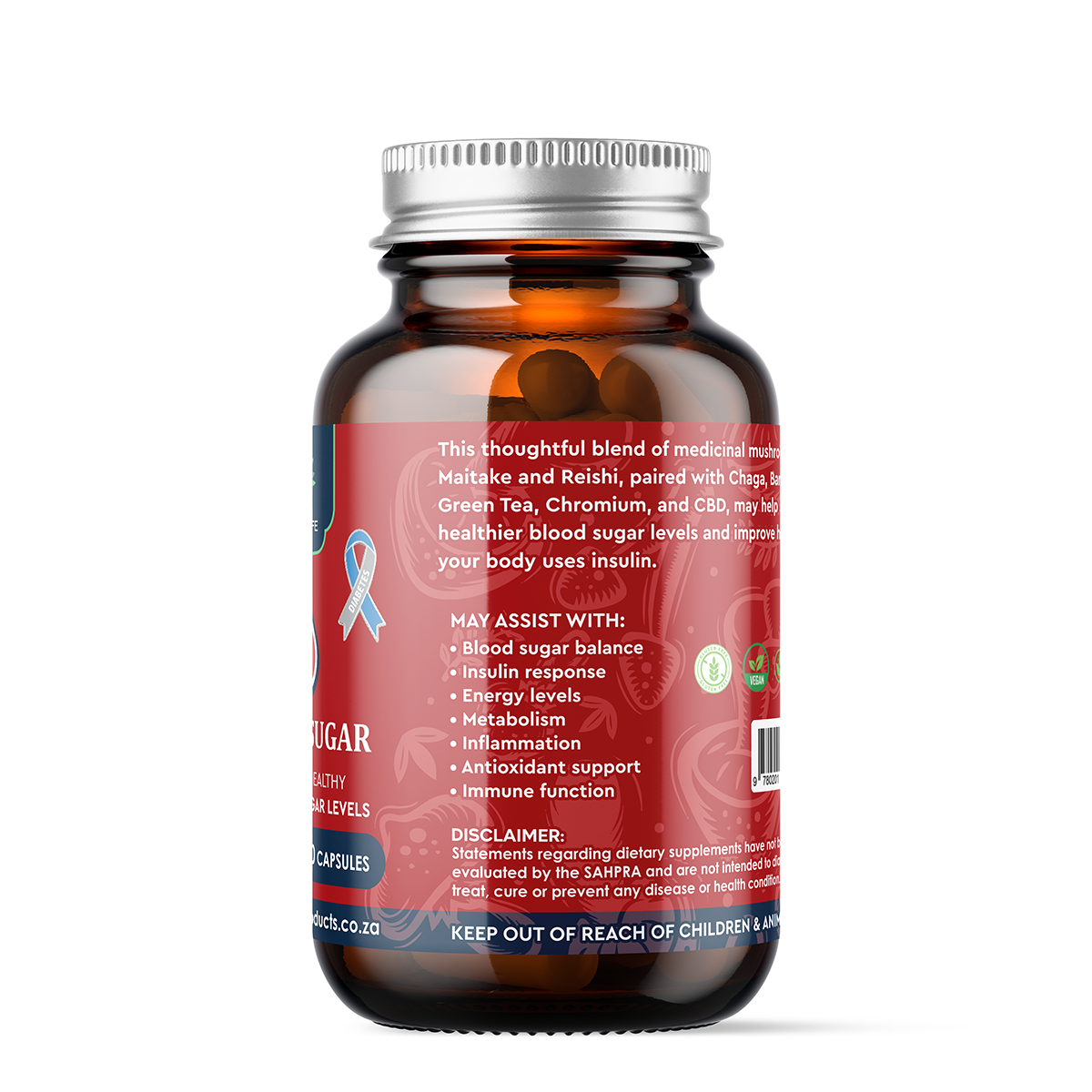
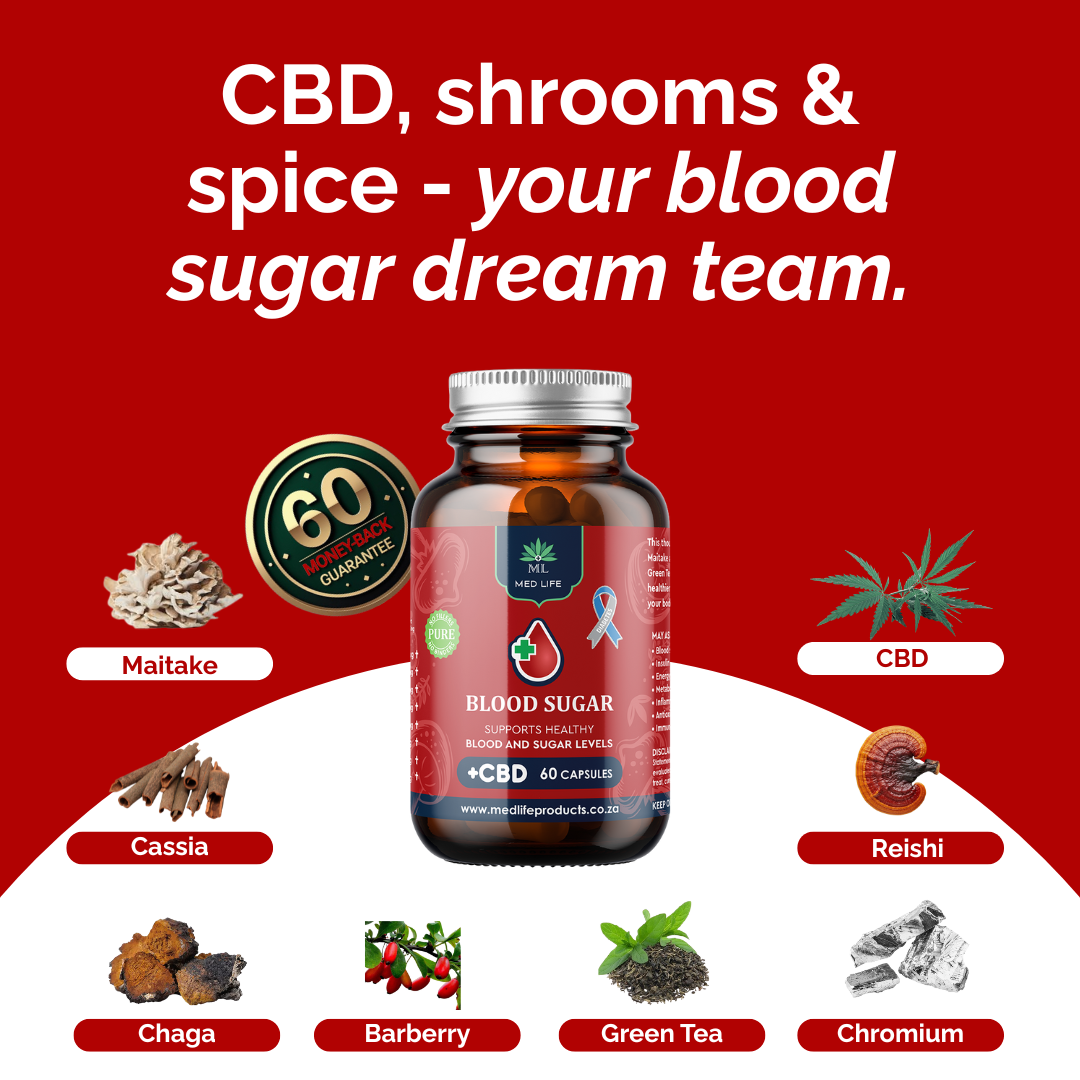

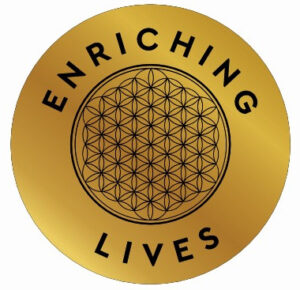
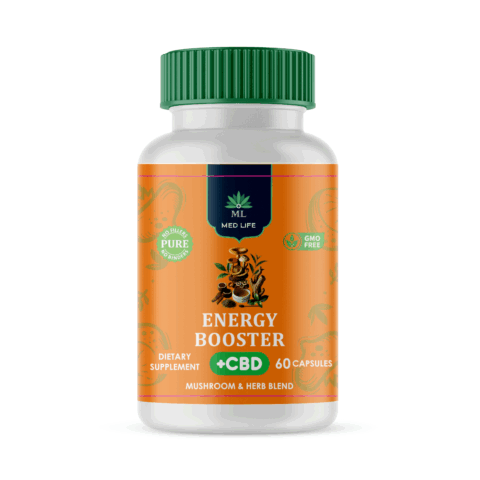

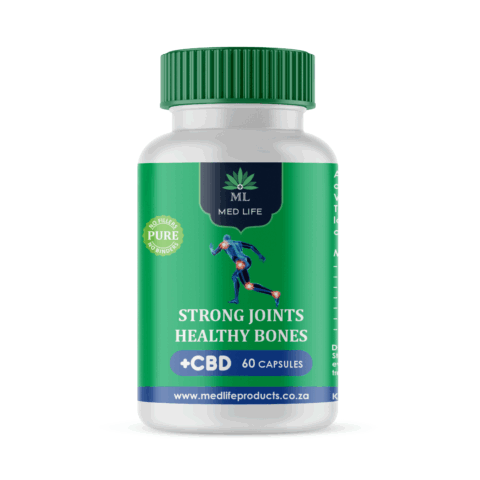
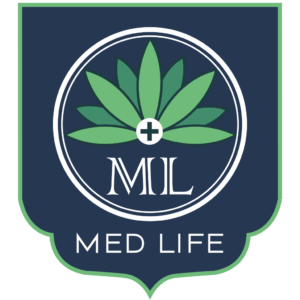

Reviews
There are no reviews yet.